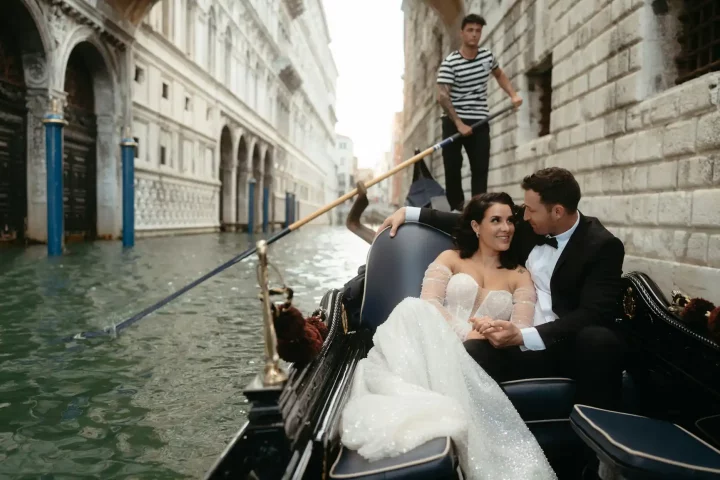Italian citizenship by marriage has long been a pivotal legal pathway, enabling foreign spouses of Italian citizens to obtain nationality and integrate more deeply into Italian society. This provision not only fosters familial unity but also extends the benefits of Italian citizenship, including freedom of movement within the European Union and access to various economic and social opportunities.
Recent discussions surrounding proposed amendments to the law, however, signal potential changes that could significantly impact this pathway. This text examines the current framework, the proposed modifications, and their broader implications.
Current legal framework for Italian citizenship by marriage
Under current Italian law, foreign spouses of Italian citizens are eligible to apply for citizenship following specific residency and time requirements. These criteria differ depending on the couple’s residency status and whether they have children. The process is governed by the principle of jus matrimonii, granting citizenship through marital ties under the following circumstances:
For spouses living abroad
- Foreign spouses residing outside of Italy can apply for citizenship after three years of marriage.
- This waiting period is reduced to 18 months if the couple has biological or adopted children.
For spouses living in Italy
- Foreign spouses residing in Italy are eligible to apply for citizenship after two years of continuous residency following their marriage.
- If the couple has children, this waiting period is reduced to one year. Continuous residency must be proven through valid permits and other documentation.
Additional requirements
Beyond meeting the residency and timeline criteria, applicants must satisfy certain conditions:
- Demonstrate proficiency in the Italian language (B1 level minimum).
- Provide evidence of a legally valid marriage recognized under Italian law and proof of residence.
- Maintain a clean criminal record, as any disqualifying offenses can result in application rejection.
This framework ensures that both spouses residing in Italy and abroad can access citizenship, reflecting the inclusive nature of Italian citizenship laws.
Take advantage of specialized assistance to secure your passport for a borderless future.
Older cases and important information
Women who married Italian citizens before April 27, 1983, automatically obtained Italian citizenship, but specific conditions could lead to its loss. These include the death of the Italian spouse before April 27, 1983, divorce registered in Italy before that date, or the Italian spouse’s naturalization in another country prior to May 19, 1975. After May 19, 1975, naturalizations no longer affect the spouse’s Italian citizenship status.
It is also important to highlight two pieces of information:
- Italy recognizes same-sex marriage.
- If the Italian spouse passes away before the completion of the citizenship process, the surviving spouse cannot continue the application.
Requirements for application
All documents, including birth and marriage certificates, criminal records, and residency certificates, if not in Italian, must be prepared and translated by a sworn translator and authenticated with an apostille.
The applicant must also present “Estratto per riassunto dai registri di matrimonio”, which is a certificate issued by the commune at the city of birth of the Italian spouse.
Application steps:
- Complete the “Ministério Dell’interno” form and attach copies of the required documents.
- Upon document review, the ministry will schedule an appointment at the Italian consulate to present the documents.
- Following document approval, applicants will take an oath to receive confirmation of Italian citizenship.
It is important to highlight that one does not need Italian citizenship to live in Italy if married to an Italian citizen. Marriage to an Italian citizen grants the right to live in Italy without Italian citizenship. Non-Italian spouses can obtain a “Carta di Soggiorno,” issued by the local “questura” (mayor’s office), with each office having its own document requirements.
Proposed amendments and their impact
In the official press release of the Council of Ministers No. 121, dated March 28, 2025, significant amendments to the Italian citizenship by marriage pathway were proposed through a draft law (Disegno di Legge, DDL).
If approved, the amendment will restrict the acquisition of Italian citizenship by marriage exclusively to foreign spouses who reside within Italy. This revision would effectively exclude spouses residing abroad, regardless of their eligibility under current laws.
The proposal raises concerns about its potential to create logistical challenges for families separated by international borders.
For foreign spouses living abroad who intend to apply for Italian citizenship, acting promptly is essential. Under the current legal framework, applications can be submitted before the proposed amendments are enacted, preserving eligibility regardless of the applicant’s residency.
Italian citizenship by marriage has provided a vital pathway for foreign spouses to formalize their nationality and strengthen family connections. While the current framework accommodates spouses both residing in Italy and abroad, the proposed amendments signal a significant shift in the criteria for eligibility.
With the legislative review process ongoing, the outcome remains uncertain. Those considering applying for citizenship through marriage are advised to act promptly to secure their status under the current legal provisions.
As Parliament evaluates the proposal and debates its implications, affected individuals must remain vigilant and informed about changes that could shape the future of Italian citizenship law.






